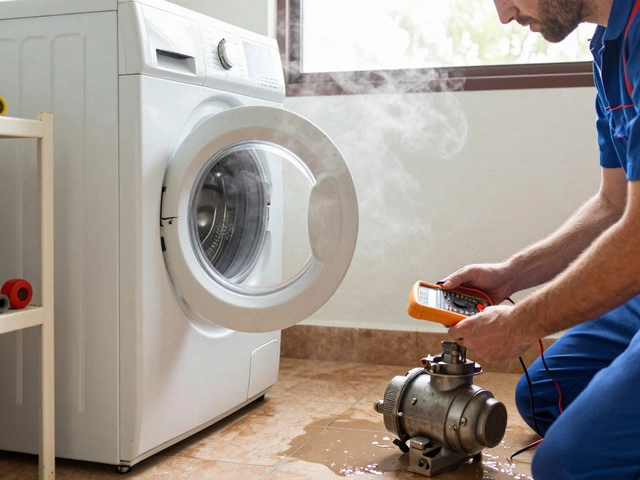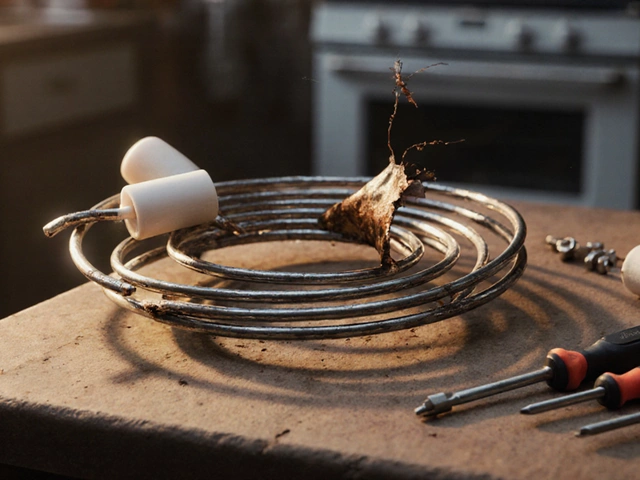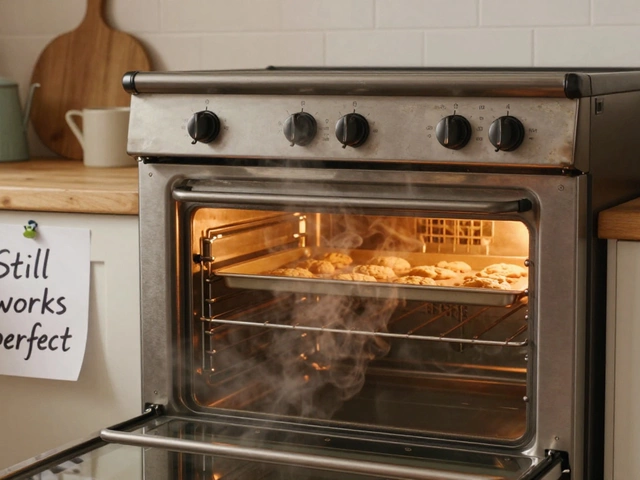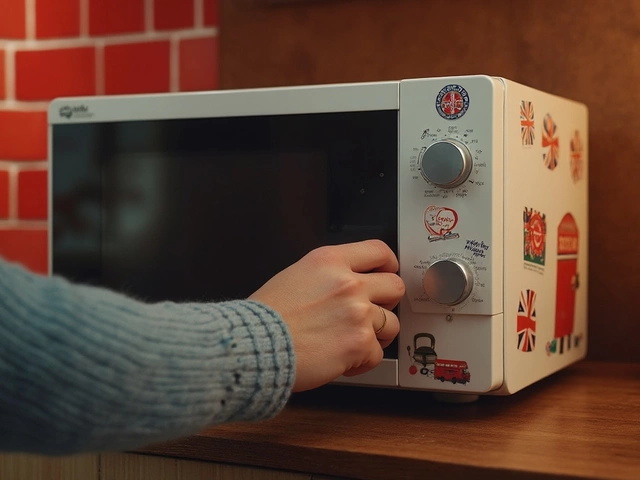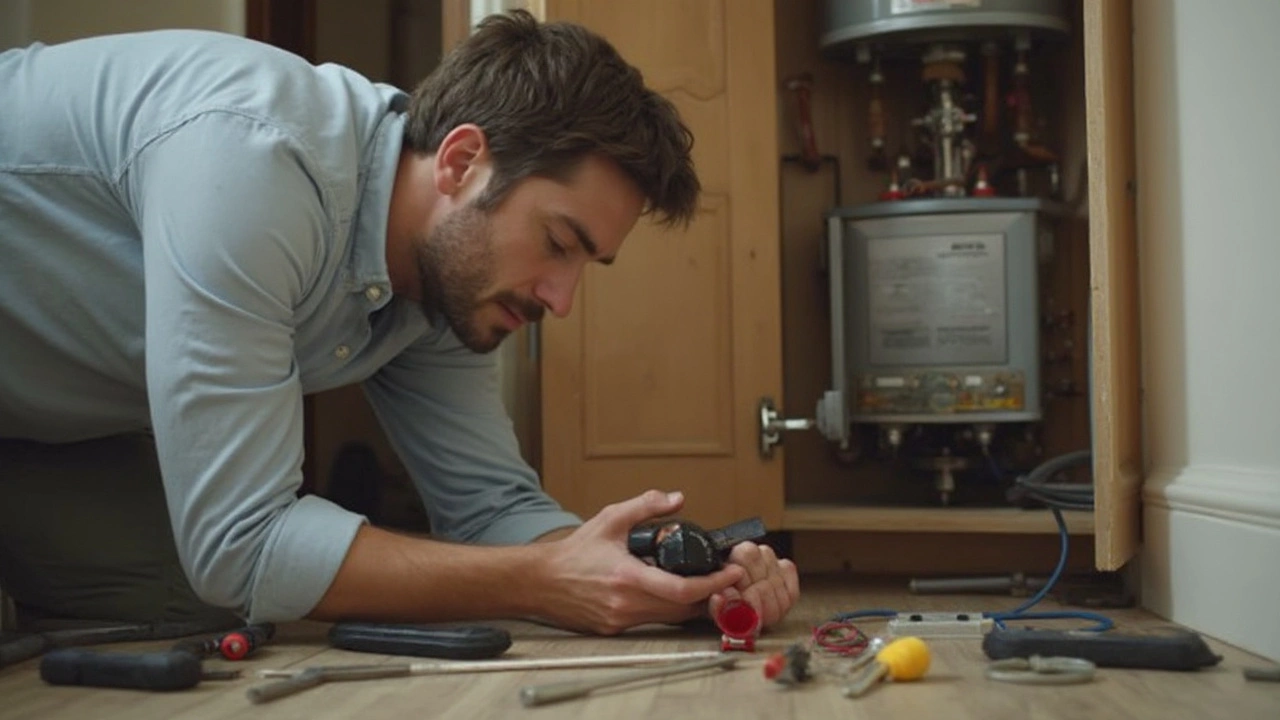Heating Element Problems – What They Are and How to Fix Them
If your oven won’t bake, your fridge freezer stays warm, or the water heater only gives cold water, the culprit is often the heating element. It’s the part that turns electricity into heat, so when it dies your appliance stops doing its job. Below we’ll walk through the most common signs, quick checks you can do at home, and when it’s smarter to call in a pro.
Typical Signs a Heating Element Has Gone Bad
Every appliance shows a few tell‑tale clues. An oven that heats unevenly or not at all, a dishwasher that leaves dishes lukewarm, or a dryer that tumbles without warming are all red flags. In fridges, a heating element is used in the defrost cycle – if you notice ice building up inside, the element may be stuck "on" or completely failed. Water heaters that only deliver cold water almost always have a burnt-out element.
Other clues include a humming sound with no heat, a burnt smell, or a visible break in the coil. Checking the element visually (once the power is off) can save you a call‑out if the damage is obvious.
Simple DIY Checks Before You Call a Technician
1. Power off and unplug. Safety first – never work on a live appliance.
2. Inspect the element. Look for cracks, corrosion, or burnt spots. A broken coil is a clear sign it needs replacement.
3. Test with a multimeter. Set it to resistance (ohms). A good element reads a steady value; infinite resistance means it’s open and dead.
4. Check connections. Loose wires or corroded terminals can mimic a bad element. Tighten any loose screws and clean off any rust.
5. Reset safety switches. Many ovens and water heaters have a thermal cut‑out that trips after an element burns out. Resetting it may solve the problem if the element is still good.
If the element passes the multimeter test and connections look fine, the issue might be deeper – like a faulty thermostat, control board, or wiring. That’s when a qualified technician from Rugby Appliance Repair Services should step in.
Why call a professional? Heating elements run at high temperatures and can cause electrical fires if mishandled. A certified tech has the tools to safely replace the part, test the whole system, and spot hidden problems that could cause future breakdowns. Plus, our team offers same‑day service in Rugby, so you won’t be left without heat for long.
Bottom line: when you notice your appliance isn’t heating, start with a quick visual and multimeter check. If the element looks damaged or fails the resistance test, replace it. For anything more complex, give the experts a call – it’s faster, safer, and often cheaper than dealing with repeated breakdowns.

